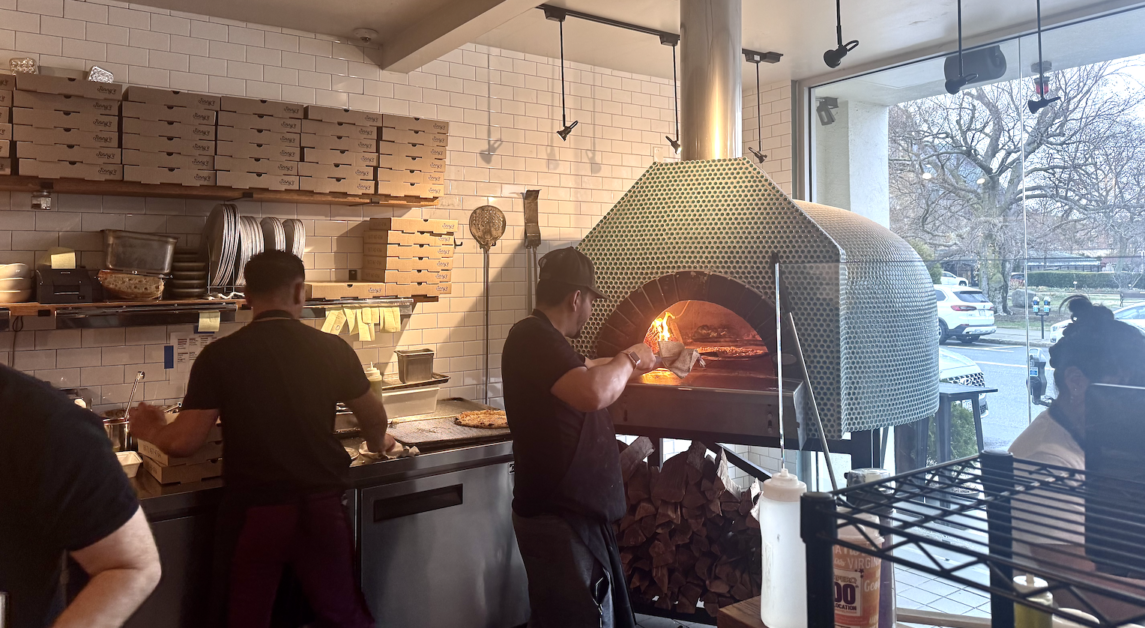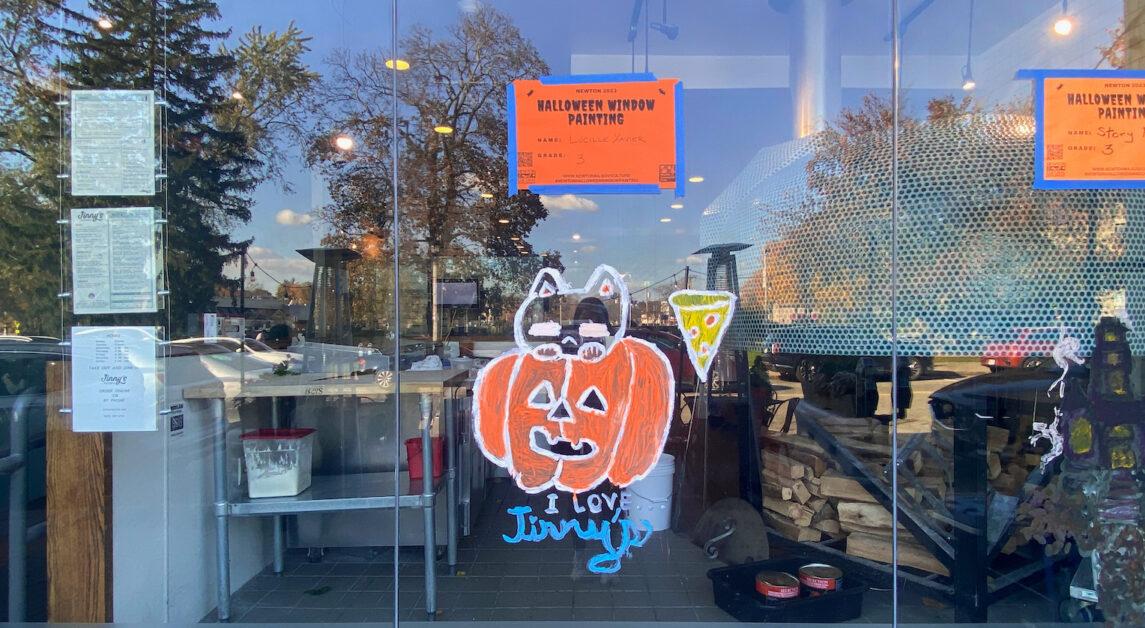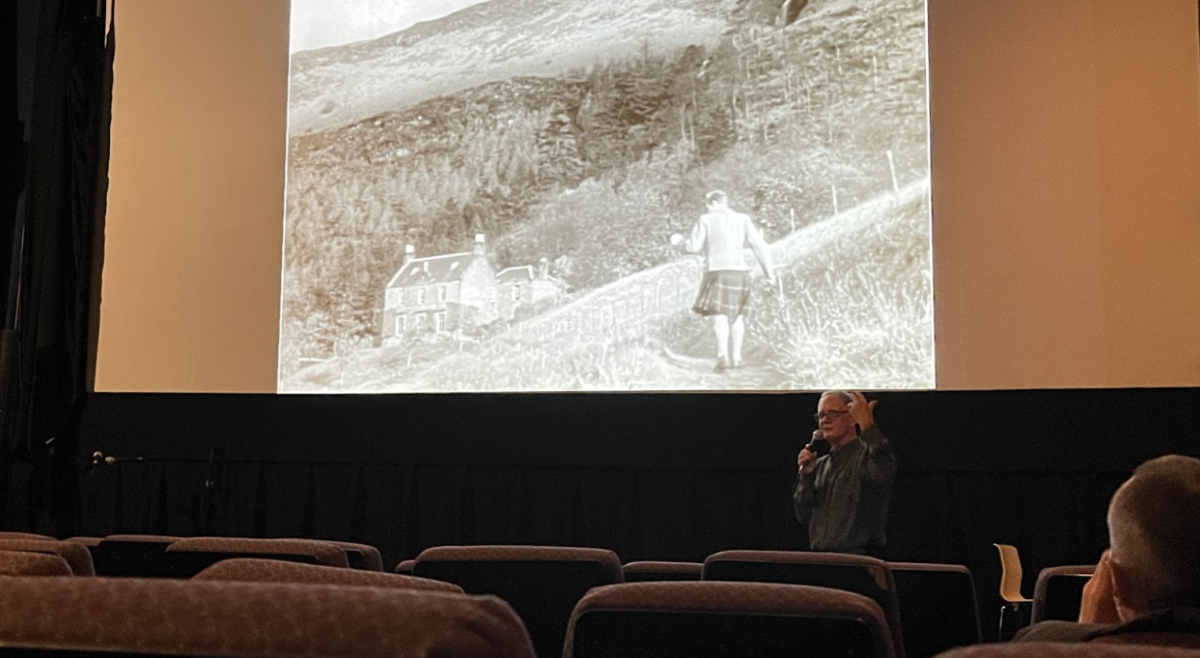As Ori founder Hasier Larrea listens to the moderator address future visions for the smart city ecosystem, the microphone dangles between his index finger and thumb. Dressed in a crisp blue collared shirt, heather gray blazer, and jeans, he emits a distinctly European sense of relaxed professionalism—reminiscent of his university studies near the Spanish coast. Yet, in the moments before starting this roundtable discussion, he spends a few pensive moments looking out the window. Below this sixth floor venue in the Seaport District, the melange of car horns and traffic officer whistles was muted by the steady drum of looming cranes.
Construction projects have populated the city at a frenetic rate in recent years as a result of a boom in Boston’s startup landscape. The consequent recruitment of tech employees and executives presents a new challenge for urban planners and real estate developers as more people search for a place to live near their workplaces. This reality will necessitate that people reconceptualize the spatial layouts of their homes and, he said, will dismantle the “linear relationship between square footage and functionality” within shared living spaces. Larrea believes that his team at Ori has the technical know-how to seamlessly bridge the gap between architecture and robotics, two worlds that have yet to fulfill their combined potential. Larrea is convinced that Boston is the best testing ground for him to put this theory into practice.
Fueled by a desire to design viable solutions to the issues associated with mass urbanization, Larrea arrived at Massachusetts Institute of Technology, formally trained as a mechanical engineer. He wondered how his passion for architecture could be woven into his master’s research efforts. Admittedly, he was under the impression that these two disciplines were mutually exclusive, and that a potential intersection was impossible. Yet the MIT Media Lab presented Larrea with the perfect opportunity to combine these interests through the CityHome project borne out of the City Science Group, a research division of the Media Lab devoted to the investigation of new models for urban design, and optimal combinations of automated systems to address the exigencies of the future.
Here, a graduate program he envisaged would take six months snowballed into a six year stint at MIT, and, after collaborating with researchers that would eventually form the founding team at his startup Ori, a path illuminated before him.
“The stars aligned,” Larrea said. “Rather than a choice between being a researcher and an entrepreneur, it became an evolution that came with the project.”
Born in 2015, Ori is Larrea’s attempt to translate several years of research and rapid prototyping into a scalable final product that could be easily integrated into blueprints by real estate developers. Ori had proof that the concept of installing robotic furniture hubs that house your bed, office desk, and closet inside 250 to 400 square foot apartments was possible. Thus, the point of emphasis for Ori shifted away from more research. Instead, Larrea wanted to move from having one system that worked once in a controlled environment to expanding production to a thousand systems working all the time when interacting with residents.
“You will learn more from five minutes with a client than from five months with sketches and one-off prototypes,” Larrea said.
So he collected insights from thousands of potential end users, uncovering what people thought about bringing robotics into the home. Security and reliability were dimensions that Larrea took seriously. Many wanted a product that was both aesthetically harmonious and affordable for young professionals or couples living in the city, where the rising cost of living has pushed workers toward its peripheries. People are more responsive when the pain is most acute, so the problems associated with mass urbanization allowed Ori to weave their demands into the iterative process. The 30,000-foot, bird’s eye view for Ori is to reroute the trajectory of city life.
Commands can be relayed to the wifi-enabled Ori hub through Alexa and Google Home, which now act as essential links to the internet of things where different applications, such as Spotify and Uber, can be accessed instantly. The furniture runs on a fixed track extending along the length of the room, and can shape shift to accommodate specific activities. Suppose you want to pick out an outfit while your significant other practices yoga in the other room. With a simple gesture, the robotic furniture will transform what used to be the dining room into a spacious yoga center on one side and a walk-in closet on the other. When it’s time for bed, the mattress will slide out from its hidden moorings to change the space into a bedroom. This innovation stands in stark contrast to trends in space functionality of the past, such as the concealable Murphy bed popular in the early 20th century.
“You can’t use old solutions to solve new problems” Larrea said.
In partnership with real-estate developers and a world-renowned designer by the name of Yves Behar, Larrea and his team were able to iterate on Ori’s furniture design, user experience, and brand image by emphasizing modularity and customisation. By creating pricing tiers based on different textile combinations, the total addressable market expanded and effectively eschewed a division between the “haves” and “have nots”. By removing inefficiencies and frictions impeding the adoption of home innovation, Ori hopes to show the world that robotics can seamlessly fit into the spaces we cherish the most.
“[City spaces] are far too valuable to be static and not respond to the users needs,” Larrea said. “The same robotic platform technologies—the mechanics, electronics, and so forth—will be applied across the spectrum to solve other problems derived from different urban spaces. Technology and robotics can create spaces that have the intelligence of a computer.”
This is the ethos that has allowed Ori to expand its influence, with 13 pilot apartments currently equipped with their system across the country. Ultimately, Ori’s mission is to establish a platform that empowers other companies to create and build automated systems for the home. With its incentives to create and resources to execute, Boston is a natural breeding ground for this type of disciplinary melange. Yet, despite the promise that innovation will simplify many of the tasks we as humans find time consuming, it appears that the home is the last frontier to be explored. Space is now at a premium for city dwellers, and Ori wants to make sure that we make good use of it.
After all, “every square foot is not created equal.”
Featured Image Courtesy of Ori













